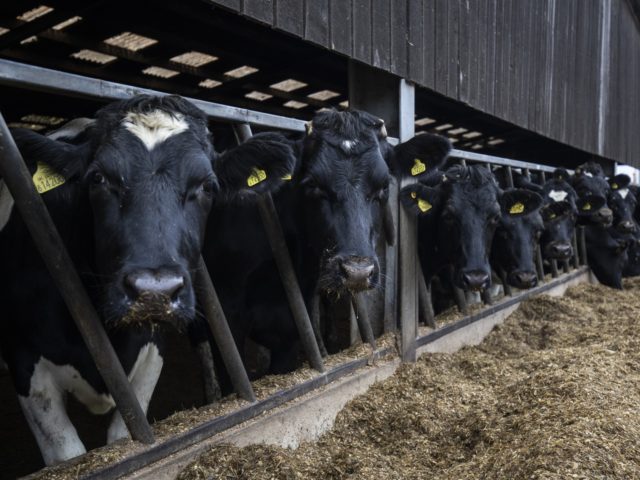A UK council has voted to only serve vegan food at official events, citing the high greenhouse gas emissions of the global meat and dairy industries.
A local council in the UK has voted in favour of only serving plant-based food during official events due to climate concerns.
The move comes as increasing pressure is put on western nations to lower meat and dairy consumption in order to curb emissions, with the British government exploring the possibility of putting carbon taxes on the food industry.
According to a report by The Mail, the vote passed in the rural county of Oxfordshire thanks to the combined support of local Liberal Democrats and Green councillors.
This was despite protests coming from local Conservatives, with one saying that “a carrot not a stick approach should be employed” regarding the issue.
“The Conservative opposition believes that veganism is a choice that should be respected but it is not something that should be rammed down the throats of vegetarian and meat-eaters,” said one Conservative councillor David Bartholomew.
Meanwhile, a spokesman for the Countryside Alliance, Mo Metcalf-Fisher, has also criticised the move, accusing Green and Liberal Democrat leadership of alienating the rural community.
“Scrapping meat is unnecessarily divisive and demonstrates no understanding of how meat in this country is produced, which thanks to UK farming practices, is among the most sustainable in the world,” the spokesman said. “Meat and dairy are enjoyed by the vast bulk of the public and dietary choices remain just that: a choice.”
“Oxfordshire County Council’s Liberal Democrat and Green leadership would do well to actually liaise with their local farming community to see their amazing work first hand, rather than bringing in provocative, headline-grabbing proposals which alienate the rural community,” Metcalf-Fisher continued. “By sourcing their meat and dairy from only local producers going forward, the council would be setting an example people might want to actually get behind.”
Despite the criticism, local Green party councillors remain positive about the decision.
“We need to get people to reduce consumption of meat. Meals are provided to council six times a year. I felt that we should be embracing the opportunity to set an example and send the message out,” said Ian Middleton, the Green councillor who first proposed the measure.
“I’d have thought that anyone with a genuine concern about the future of the ecosphere would see that as a pretty modest sacrifice for the sake of future generations,” he continued.
While the method may be controversial with local Conservatives, the sentiment has been echoed by the Tories at a national level.
The Johnson government announced in October that it was looking at implementing carbon border taxes on food entering the country in order to encourage a reduction in emissions abroad.
Although the move will ostensibly give British farmers a leg up in the local market, it will also likely result in increased prices for the consumer, at a time where the price of red meat is already set to increase in price by ten per cent over the next five years.
The move echoes a suggestion made by some academics in Cambridge University, who have said that the price of meat and dairy should be raised in order to save the planet.
The study, published in the British Medical Journal, said that “interventions that decrease the affordability of unhealthy unsustainable options and increase the affordability of healthier sustainable options,” could be implemented to change the behaviour of consumers.
Even as politicians mull over the idea of reducing the amount of meat the general public consumes, their own consumption has yet to show much sign of dropping off.
At the United Nation’s annual climate change summit in Glasgow last month, delegates were still served a healthy portion of meat and dairy-based meals.
This is despite the U.N. itself advocating for significant reductions in the consumption of the products.

COMMENTS
Please let us know if you're having issues with commenting.